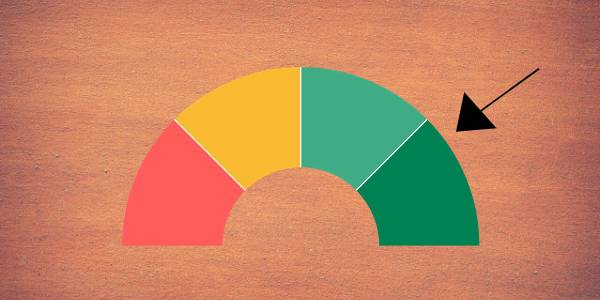As the first week of every month approaches, the people in the US gets stressed because of the pending monthly bills. There are several things that need monthly payment, including the mortgages, student loans, rents, credit card bills, etc. In this time of COVID-19 pandemic, many people have lost their jobs, businesses, and other sources of income. But the bills are getting piled up without any care whether you are earning or not.
According to a recent report, more than 77% of the US citizens are worried about their personal financial situation in this time of Coronavirus outbreak. The report also says that 44% of Americans are finding it one of the biggest concerns to pay the bills.
Along with the stress, the people also know that if they don’t pay the bills on time, it will have a negative impact on their credit score, which can damage their financial system for future. A lot of financial things depend on the credit score or rating, because the banks, financial organizations, and money lenders judge the level of risk on the basis of credit score only. If the credit score is getting impacted, there will be long-term consequences whether they go for credit on home loans, car loans, or even a credit card.
Do remember that the banks and financial organizations will not change their formula of calculating the credit score, even in this financial crisis. The credit score is calculated on the basis of certain weightage divisions, like payment history, debt usage, credit inquiries, credit age, etc. One of the biggest divisions for weightage is missing payments (payment history), and if you are not paying your bills on time, it will directly impact your credit rating.
Managing credit score during COVID-19 pandemic
To avoid the impact on your credit score, there are a number of steps that you need to take care of during this financial crisis.
- Prioritize your bills
To manage your credit score and keep things positive, you have to set priorities on which bills are crucial to be paid. For this, you can list your monthly bills in a sheet or a page to centralize exactly where the money is supposed to be spent. Once you have a central list of your monthly bills, you can prioritize exactly which bills have impact on your credit score and how much. It is very important for you to have an idea of all your bills to manage income and expenses.
After listing the expenses and income, now write the minimum monthly payment that you need to pay. Understand the gap between your complete due amount and the minimum amount to be paid. Now, try to at least pay the minimum amount to avoid impact on your credit score. Timely payment matters a lot, even when the financial crisis is going on.
- Paying rent and mortgage
Are you finding it difficult to pay your rent and mortgage?
If your landlord syncs your rent reports to credit bureaus, then not paying the rent will also degrade your credit score. Smaller landlords generally don’t report the rent payment to these bureaus. Do check if your landlord is reporting the rent, so that you can take the steps accordingly. If it is not reported, then you can set different priorities for it. In case it is being reported, what you can do is talk to them and reduce your rent payments for the time being. Let them know your financial conditions, how much you are able to pay per month, what you can do for it in the future, etc.
If you pay the rent and mortgage on time, it will have a positive impact on your credit rating. The weightage for credit score is different for mortgage and rents. The mortgage reports stay in sync with the banks and credit agencies. According to the process, you have to pay the mortgage amount on time.
- Taking care of other important bills
Like the mortgage payment, the other bills that are attached with your credit agencies or banks include credit card bills, home loans, student loans, auto loans, etc. So, if you are missing or paying late payments, this will also degrade your credit score. In this crisis where paying all the bills on time is very difficult, you have to get in touch with your banks and lenders to see if they can help.
Financial advisors suggest that you should contact your lenders and banks for some assistance. There are many banks, creditors, and lenders who are providing exclusive repayment options on a number of debts to help their consumers. Maybe you can find the options to defer your pending amount for a few months.
If any assistance is provided, this can work as a blessing for your credit rating.
Another great thing is that if you have borrowed a student loan which falls under federal loans, then you get the payments deferred till the end of September 2020. It wouldn’t involve any interests, so you can have some peace of mind and avoid the payments for student loans till September.
If your student loan doesn’t fall under federal loans, then contact your lender to know if they have some deferring options or any other plans during this crisis.
- Check credit score regularly
Your credit score is calculated by credit agencies and bureaus on the basis of data provided by lenders. Along with acting as a key parameter in loan eligibility, the credit score in some sectors also plays a role in recruitment screening. Hence, it is of utmost importance to keep a track of your credit score on a regular basis to ensure that it is not getting degraded.
When you check the credit score regularly, it will help you to know and understand your credit report properly, your creditworthiness, etc. Also, you can check and find if there are any errors in your credit report and get them corrected by the respective banks or agencies.
- Seek financial assistance
Despite trying your best to manage your credit score, if you are failing to keep it up and going, then you should try to seek some financial assistance from credit counselors. The expert counselors can provide you great advice and tips on how to manage a good credit score during COVID-19 crisis. They can also help you build a debt management plan so that you can take care of your debts and repay in a handy way.
Moreover, if you are looking to invest your money now for better, you should seek consultancy because the financial market in the US is going through rapid fluctuations and causes a lot of concerns.
How to check credit score:
You can check your credit score easily and download the report for free by visiting www.annualcreditreport.com.
Wrapping up:
During the Coronavirus pandemic, managing your bills with an eye on how to manage the credit score will help you in the long run. Check the credit report regularly, consult with financial advisors, prioritize your bills, and take advantage of whatever help is available from lenders, banks, and credit agencies.
We hope these tips will help you to check and manage your credit score.



